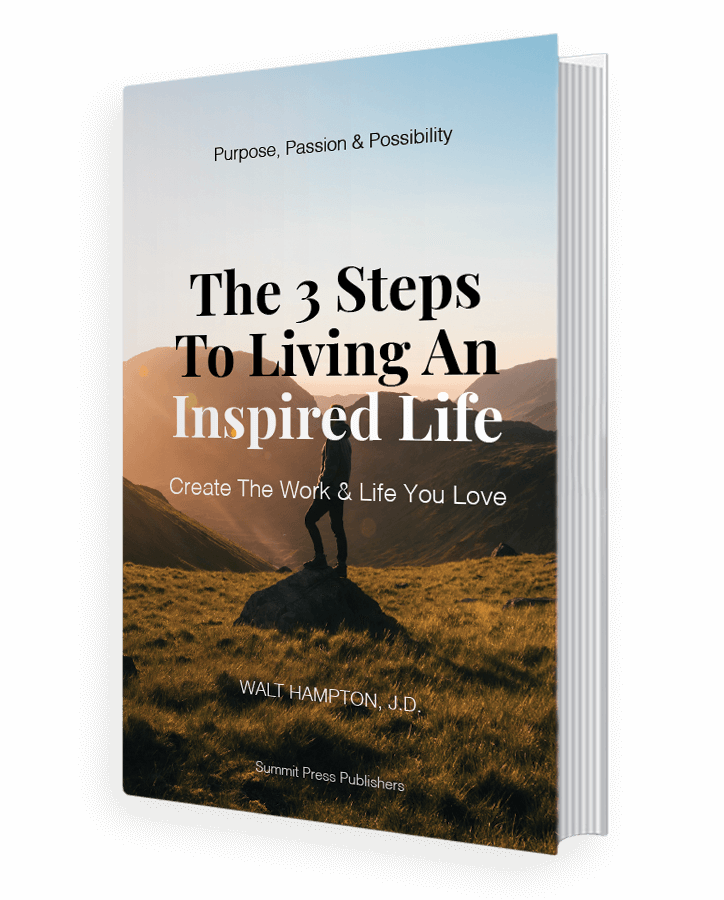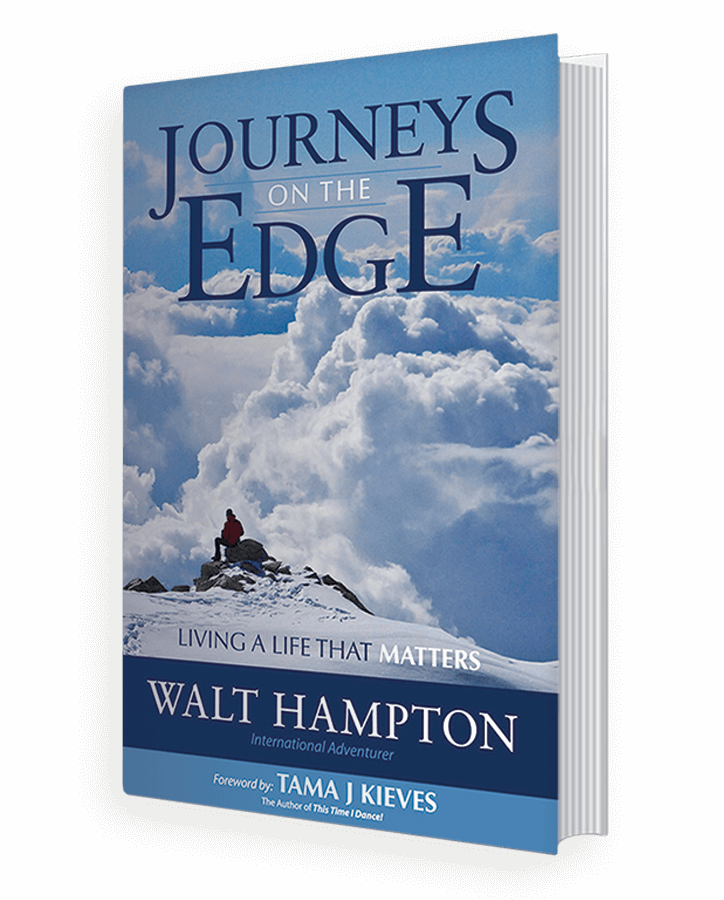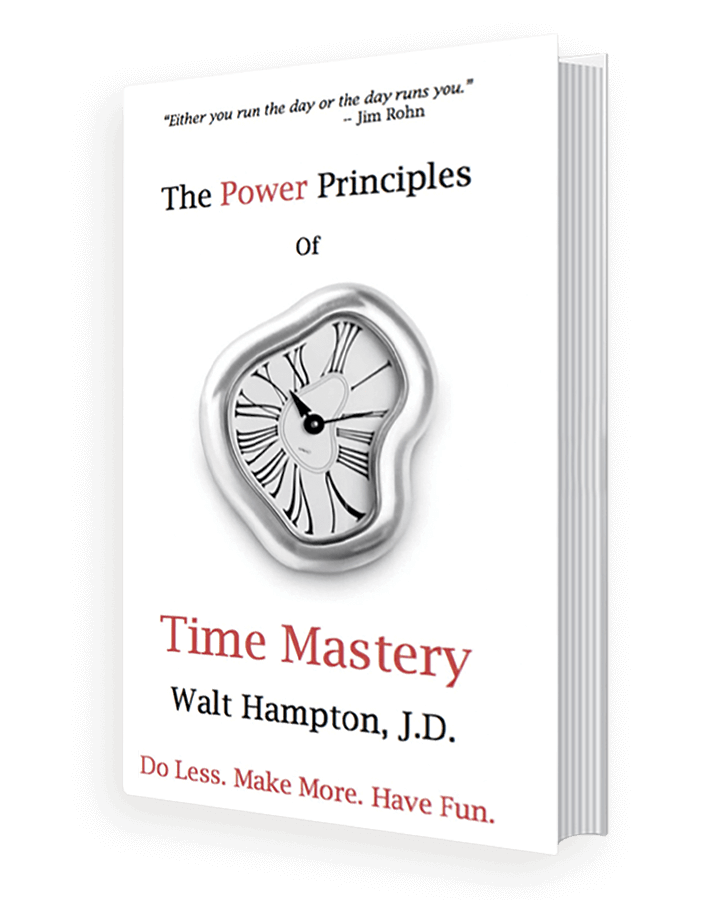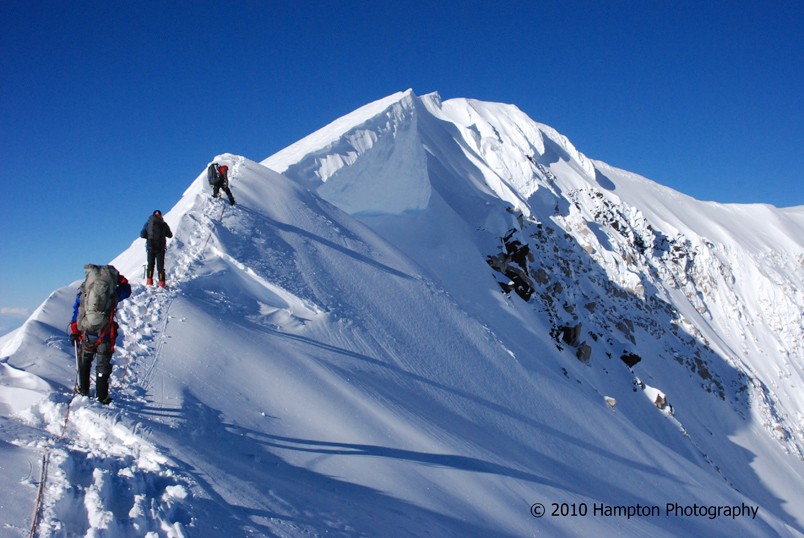Welcome to my blog
Grow & Scale A Business That Will Set You Free
Stop Deciding
There is a difference between interest and commitment. When you’re interested in doing something, you do it only when it’s convenient. When you’re committed to something, you accept no excuses, only results.
— Ken Blanchard
It doesn’t happen very often. It was a rare moment of struggle.
It had rained hard all night long. When the alarm rang at 4:30, I could still hear the splatter on the skylight. And it was dark.
Should I go out for a run? Or not?
I carried on this “conversation” with myself until about the third mile in. Such a waste. Because going out the door in the morning for a run is not an option. It’s what I do.
Deciding is not part of the equation. I decided long ago that this was a commitment that I wanted to make for my health and fitness. If I had to face the decision every day about whether I would run or not, I would be exhausted. And there would be plenty of days that I would “decide” not to to it: because it’s inconvenient; because it’s cold, dark, wet, unpleasant; because I’m feeling tired or achy or fat.
I make no exceptions because exceptions are slippery slopes.
“Successful people adhere to the ‘no exceptions rule’ when it comes to their daily disciplines,” writes Jack Canfield. “Once you make a 100% commitment to something, there are no exceptions. It’s a done deal. Nonnegotiable. Case closed! Over and out.”
Once you’ve made a decision about something, you don’t have to go through the whole process of deciding again. You’re not wrestling with it day in and day out. It’s just something you do. No matter where you are. Or how you feel.
Like brushing your teeth, says Canfield. Or monogamy. Or diet.
There are so many areas in our lives that might benefit from the ‘no exceptions rule.’
I journal or write. Every day. No exceptions. I go to the gym. I set aside an hour each day for my creative projects. These are things that are non-negotiable.
We could apply the rule to projects we have at work; goals we want to pursue; places we want to go; things we want to do. Decide once. And move forward.
Leadership expert Brendon Burchard suggests we apply it to time away for ourselves. Once every 90 days, he says, take four days completely off the grid to rest, relax, renew. Do it no matter what. Do it even if you have to turn down other opportunities.
Just do it.
There’s a reason Nike’s overused slogan so resonates for us: there’s truth in it.
“It makes life easier and simpler and keeps me on focus,” says Canfield. “It frees up tons of energy that would otherwise be spent internally debating the topic over and over and over, because all the energy I expend on internal conflict is unavailable to use for creating other achievement.”
Our creative work, the work of our souls, requires action. Constant, focused, massive action. Struggle is the serpent’s voice.
So stop the struggle. Decide. On your commitment to health; on your commitment to fitness; on your commitment to service; on your commitment to giving; on your commitment to the life you want to live. Decide once and for all.
Then, as Admiral David Faragut once said, “Damn the torpedoes. Full speed ahead.”
Once you make a decision, the universe conspires to make it happen.
— Ralph Waldo Emerson
Stop by for a visit at Hampton Photography.
Not A FAQ
Death is the only wise advisor that we have. Whenever you feel, as you always do, that everything is going wrong and you’re about to be annihilated, turn to your death and ask if that is so. Your death will tell you that you’re wrong; that nothing really matters outside its touch. Your death will tell you, ‘I haven’t touched you yet.’
— Carlos Castaneda (Journey to Ixtlan)
The air was sucked out of the room. There wasn’t a sound.
“What’s your view of death?”
The question came from the back left corner of the room. He looked to be in his mid-thirties from the podium where I stood.
I had been talking about shitting in a can. Every audience I speak to about my high altitude mountaineering exploits loves hearing me describe the mechanics of pooping in the cold.
“What’s your view of death?”
Where the hell did that question come from? People ask about dehydrated food. They don’t ask about death.
I glance around the room full of Rotarians. To a one, they look as if they’ve just witnessed a horrible car crash, their jaws gaping open.
The question hangs in the stillness. “What’s your view of death?”
Time stops. I continue to smile with my laser pointer held awkwardly in my hand. Images, fragments, in slow motion, flickering on the screen of my mind: The frozen bodies; the helicopters short hauling the dead; the climbing buddy I held in the front seat of his crushed car on a clear, crisp winter afternoon, feeling his life ebb away; the SIDS baby I tried in vain to resuscitate; the long night I spent with a dear friend holding his hand in the stillness hours after his labored breath had ceased; the vision of my little orange kitten flattened in the road as I stood looking from the stoop of my boyhood home, my small chest heaving, tears streaming down my cheeks; the memory of my grandfather in his open coffin.
What do I say to this man? That I don’t Like death? That I’m not a Fan? That no one consulted me? That I wouldn’t have voted for it? That it seems like a rude interruption, both the question and the concept?
What do I say? That it seems unfair? That it shouldn’t happen? That it robs the joy out an otherwise pleasant experience?
Do I tell him that I deny it, that I pretend, that I make up stories? Of invincibility? Of immortality? Of its nonexistence?
Do I lie and tell him that I never think about it?
Do I explain that, whenever I hear the word, I shove my fingers in my ears and go “la la la la la” like I’m doing right now?
Do I endeavor to share my terror in the face of loss?
Do I try to explain the swashbuckling, the ho-ho-ho cheated death again bravado, that we engage in to endeavor to appear courageous, dashing, and suave?
Do I try to justify that we go to faraway high and wild places to well and truly live, and not to die?
Do I try to explain that the mere possibility of death makes experience keener, more poignant, more vibrant, more elegant, more present, more real?
Do I try to explain that life is more meaningful, more intense, more vivid, more magnificent when lived out on the Edge, the edge of a ridge, the edge of light and darkness, the edge of sea and sky; the edge of storm and calm; the Edge between what we know to be Life and what we cannot know Beyond?
“What’s your view of death?” The question now like rancid meat on a hook. I wonder how many seconds or minutes or hours have gone by. The silence seems to echo. The faces still frozen. The laser pointer unmoved.
I punt (as in I dodge): I mumble something about a “risk-reward” analysis, about the dangers of driving, about the dangers of ordinary living.
Next question, please? (Can we talk about shitting in a can again?)
But I’ve come back to that question again and again since that “could have been a lot less awkward” afternoon.
What if I had only six months to live? What would I do differently? Would I have the same job? Would I have the same relationships? Would I do the same things? Would I go the same places? Would I have the same ridiculous complaints? Would I engage in the same petty disagreements?
Would I surf the net? Would I update my status?
Do we live as if every minute matters? Because it does.
Do we stand in gratitude and awe, radically present to the beauty and magnificence that surrounds us?
Do we live with passion and purpose and intensity and joy?
Do we live with Might: with power and possibility?
Or do we muddle?
Carlos Castaneda says that death is our only wise advisor. It is only within its shadow that we can know what living truly is.
Jack Kornfield reminds us: live without regret, live a path with heart.
Live Your Bliss Specialist Patrick Combs instructs: play bigger than yourself.
Leadership trainer Brendon Burchard teaches: live fully, love openly, and make a difference.
“What’s your view of death?”
I think it sucks.
I choose to live.
I suspect you do too.
I Give Up
Our deepest fear is not that we are inadequate. Our deepest fear is that we are powerful beyond measure. It is our light not our darkness that most frightens us.
— Marianne Williamson
Resistance is the enemy.
It’s what keeps us in bed when we should be running. It’s what keeps us in the office when we should be at the gym. It’s what compels us to organize the Tupperware when we should be doing the project proposal. It’s what drives us to catch up on the news when we should be shooting the video. It’s what keeps us on Facebook when we should be writing the next chapter.
It is the urgent and not the important.
It creates dozens of rationalizations and excuses and fantasies and stories and myths about what we need to do, have to do, ought to do, might do, might not do, rather than to face into what we know to be the work of our soul.
Resistance is inertia fueled, and supercharged, by fear.
We know inertia. It’s part of the natural order of things: objects at rest remain at rest, and all of that. It’s tough to overcome inertia. It’s tough to get going.
But add fear to the mix and we are capable of all sorts of delusion.
Fear of failure. Fear of success. With fear, inertia becomes a laundry list of excuses, a litany of rationalizations, an epic drama of why we’re caught, of why we can’t.
Master fear and we conquer resistance, writes Steven Pressman in his masterpiece the War of Art. “Resistance has no strength of it’s own. Every ounce of juice is possesses comes from us. We feed it with power by our fear of it.”
But here’s the rub: fear can never be conquered, can never be overcome. The belief that fear will disappear – that somehow, sometime, we will find comfort and ease – is the quintessential lie that resistance tells us.
Fear can only be faced into with the spirit of a warrior.
Opening the door, picking up the camera, beginning to type on the keyboard, putting paint on the canvas, gigabytes on the card, stepping onto the stage, overcoming inertia despite the fear, starting down the path even when we can’t see the way, calling the lie of comfort for what it is: these are the ways of the warrior.
Resistance manifests itself in procrastination: it is its ugly Hydra’s head. It is easier, safer, more palatable to say, “I’ll do it later, tomorrow, when I have more time, when I’m better prepared, when there’s more money, when the stars are aligned, when the muse appears, when conditions are right,” than to admit to our frailty, our weakness, our own self-doubt, our own sense of inadequacy. It is easier, safer, more palatable to believe in the deception than to capitulate to resistance – and fear.
But tomorrow never comes.
Action erodes resistance, even in the face of fear. The facade of resistance begins to crack with even the smallest step.
So we must act. It is not an option. It is what we do if we are dreamers, seekers, creatives, poets, authors, artists, mavericks. Warriors. However tentative, however furtive. Action creates momentum. Even tiny, timid sustained action will slay the Hydra.
But as in all Journeys, there is an Edge. Don’t think for a moment that we can resist resistance. It is the great paradox: what we resist persists. Our action must be directed. And yet, as challenging as this is, unattached to outcome. For as Joseph Campbell wrote, “We must be willing to get rid of the life we planned so as to have the life that is waiting for us.”
So I give up. I quit. I’m throwing in the towel. No more resistance for me. What about you?
Resistance is futile.
The smallest of actions is always better than the boldest of intentions.
— Robin Sharma
Stop by for a visit at Hampton Photography.
Start Out And See What Happens
Whatever you can do or dream you can, begin it. Boldness has genius, power and magic in it.
— Goethe
It didn’t matter that I had sealed the seams. Or that we had a tub floor. Or that I had put a tarp over the site. Water was everywhere.
The torrential rains had come just after midnight. The sound on the tent wall was deafening. And depressing.
I could only coax a few of the group to start out into that dank October dawn. A summit looked improbable.
The rain poured unrelentingly. The trail ran like a river. Within minutes, I was soaked. And miserable.
Up the slick talus we struggled. The temperature near freezing. The visibility a few hundred feet at best.
And suddenly, the three of us broke through the mist, into a crystal clear windless sky. The sun warmed us and dried us. Snow flakes shot upward from the cloud deck below like crystal fireworks. Everywhere we looked, rainbows shimmered and danced.
It was as if we had been transported across time to a parallel universe. Nothing was as it had been. And it was like nothing we had ever seen.
We reveled in our good fortune and marveled in our own private paradise.
Hours later, standing once again in the rain outside our soggy tents, words failed us as we tried to share with our friends who had stayed behind the wonders that we had seen.
Those who didn’t start out could never know.
I learn this lesson time and time again. From getting out the door for the morning run, to the looming research project, to the unpleasant conversation that needs to happen, to the weights at the gym and the blog that wants to be written.
You gotta at least start.
Julia Cameron in her wonderful timeless book The Artist’s Way says that our job is to show up on the page.
Whether we want to or not, we show up and start out.
It’s what makes a “pro” says Steven Pressfield in the War of Art. An amateur capitulates to resistance; an amateur is always willing to negotiate the project away.
Whether you’re tired or not, whether it’s raining or not, whether you’re fearful or not, whether you’re feeling fat or not, whether you’re racked with doubt or not, whether you hate your job or not, whether you’re motivated or not, whether you’re in shape or not, whether it’s too early or too late, or not, whether you’re inspired or not; it is irrelevant. If you’re a pro, you make up your mind and you do it. You just do it.
Cameron says, “Leap and the net will appear.” There is a magic in the starting out. The way unfolds in a manner that can never be imagined locked in inertia.
Goethe writes, “The moment one definitely commits oneself, then Providence moves as well. All sorts of things occur to help one that would never otherwise occur. A stream of events issues from that decision, raising in one’s favor all manner of unforeseen accidents, meetings and material assistance that no one could of dreamed would come their way.”
“What I have learned from this simple philosophy is this,” writes Mel Robbins in this month’s Success magazine. “When it comes to being master of your life, you are never going to feel like doing what you need to do. It will feel wrong to ask for help. It will make you afraid to present your business plan. You won’t want to run when it’s raining outside. Getting out of bed can feel downright radical simply because you don’t want to. But you have to.” When the alarm rings, stand up, she says.
I have hit the snooze more times than I care to admit.
But I have walked ridges sculpted by the hand of God, stumbled upon the most beautiful dawns, discovered images in my viewfinder, and found entire stories upon my page, simply by starting out.
Start out. You don’t need to see the whole way. Just start. And see what happens.
Run It On Empty
Wait without thought, for you are not ready for thought: So the darkness shall be the light, and the stillness the dancing.
— T. S. Eliot
I must admit to a peculiar perversity: I derive a certain thrill from playing “chicken” with my gas tank. When the needle points to E and the light goes on, I begin to conjure and calculate just how far I can get before I really need to tend the tank. Last week, I put 15.8 gallons in my 16 gallon tank. I was so proud.
Would that I could extend this predilection to other areas of my life.
Ann, my best friend and constant companion, is away at a writers’ retreat for six weeks. And I’ve been lonely. But rather than feeling the emptiness, I’ve been running around doing just about everything imaginable to fill the hole: projects and activities and dinners and social engagements. Emailing, texting, Facebooking, faxing. Anything not to feel alone.
This is odd for me, the one who seeks solitude on the high mountain ridges in remote corners of the globe. What is it about this emptiness – this aloneness – that so unsettles, that stirs such fear?
Alone we face our vulnerabilities, our uncertainties, our inadequacies, our insecurities. Alone we are compelled to ask the haunting questions: Where am I going? What is my purpose? What does it mean? Am I enough?
Alone we see the sides of us that are not pretty. Alone we doubt.
Alone we are confronted with: Ourselves.
God knows that there’s enough to distract. You’d think I was in charge of nuclear security or a multi-national corporation measured by the number of times an hour I can check my Blackberry. And while I love the Internet, I agree with Nicholas Carr’s new work, The Shallows: the Internet quickly devolves into Too Much Information; it overwhelms.
In distraction, we fail to connect with who we really are and lose the capacity to live with any depth. It is only within our own emptiness that we come to know the Authentic, the Significant, the True. It is only here that we can discover how we are called. It is only here that we can know our connection to the Source of all this is.
This is the story they tell: A university professor went to visit a famous Zen master. While the master quietly served tea, the professor talked about Zen. The master poured the visitor’s cup to the brim, and then kept pouring.
The professor watched the overflowing cup until he could no longer restrain himself.
“It’s overfull! No more will go in!” the professor blurted.
“You are like this cup,” the master replied, “How can I show you Zen unless you first empty your cup.”
To be empty. To be alone.
“Alone. This is when it happens. In silence, alone,” says Gerry Spence in his surprisingly insightful Seven Simple Steps To Personal Freedom. “Without aloneness, without taking the fear of it into the self, without knowing it, what is the use? Birth and death happen there. And life as well happens there.”
Without this Journey inward, we skitter along the surface of things. Without Ourselves, we have nothing to offer to the world.
So over these next weeks as Ann writes, I am going to work harder to be with the quiet, to be with the questions, to be empty.
In order to be Full.
And he [the Lord] said, Go forth, and stand upon the mount before the Lord. And, behold, the Lord passed by, and a great and strong wind rent the mountains, and brake in pieces the rocks before the Lord; but the Lord was not in the wind: and after the wind and earthquake; but the Lord was not in the earthquake:
And after the earthquake a fire; but the Lord was not in the fire: and after the fire a still small voice.
— I Kings 19: 11-12 (KJV)
DOWNLOAD your FREE BOOK!

DOWNLOAD Your Free E-Book NOW! Click Below And Get Going!
Click below for your copy of Journeys!

You’ll Get A Signed Copy!
Click on the button for your copy of my brand new book “The power principles of time mastery!”

You’ll Get A Signed Copy!
Categories
Adventure
Finding The Way
Journeys
Leadership
Success
Ultra Training





